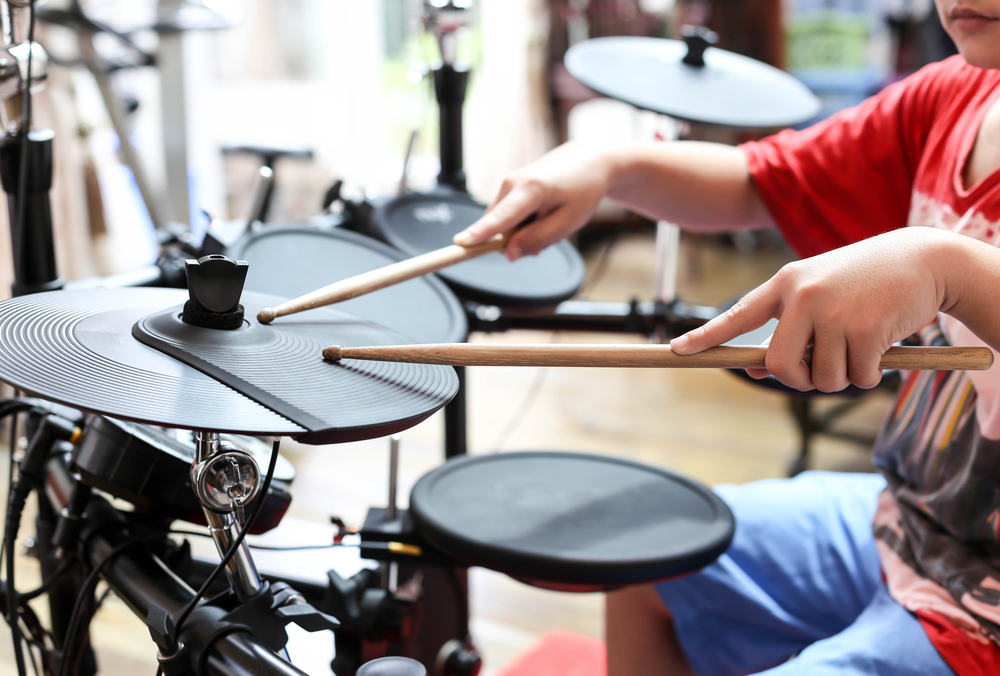Contents:
- Medical Video: How playing an instrument benefits your brain - Anita Collins
- 5 benefits of learning music that children get
- 1. Develop physical abilities
- 2. Teach discipline
- 3. Increase self-confidence
- 4. Improve skills and social interaction
- 5. Sharpen academic skills
Medical Video: How playing an instrument benefits your brain - Anita Collins
Did you know that teaching children to learn any musical instrument can be of great use for brain development, motor skills, and children's social interaction. Research published in Developmental Science and the Annals of the New York Academy of Sciences even found the fact that one-year-old babies who took music classes together with their parents showed a lot of positive progress. Not only that, there are a myriad of benefits of learning music for your child's growth and development. Anything?
5 benefits of learning music that children get
1. Develop physical abilities
Certain instruments, such as percussion and drums, help children develop coordination and motor skills. This is because these two instruments involve the movement of the hands, arms, and legs.
This type of musical instrument is good for children who have high energy. While other musical instruments such as violins and piano require different right and left hand movements simultaneously.
Musical instruments not only help children develop the agility of the child but also help children improve coordination skills that are useful for other activities such as dancing and sports.
2. Teach discipline
The other benefits of learning music are helping to exercise patience and discipline. The reason is that before reaching a higher stage, the child needs to go through the base first, then it can proceed to the next stage in a matter of weeks to months. After escaping from the basic stage the new child can proceed to the next stage.
In the process the child is also required to obey the various rules applied when he studies music. If the child enters music school he also needs to understand that playing in turns that might take a long time becomes one of the tests that patience needs to be passed.
3. Increase self-confidence
When learning musical instruments, children will certainly be given various constructive criticisms. This is done so that children change their game for the better which will increase their confidence.
Music classes that usually consist of more than one child also teach children to understand that everyone who learns must have errors and shortcomings, including himself. That way he will learn and improve his abilities.
In the end, his qualified music skills will bring him to be more prominent in the class especially if there are certain events where his role is needed. Furthermore, this will affect his confidence.
4. Improve skills and social interaction
The next benefit of learning music is that children are able to interact with the social environment. In studying musical instruments there are times when children are faced with group games that involve many children with a variety of different musical instruments. For example, he must play a musical instrument in a certain group or group.
When that happens, he must be able to communicate well so that he can make the right harmonization of music and fit. That way children cannot play alone without thinking of collaboration with their friends.
Whether the game is too hard or too fast the child needs to adjust to his other friends. The role that each child has has finally made him learn for the game to create harmonious beautiful tones.
Interaction like this will later grow the skills of children to socialize with their peers to achieve their intended goals.
5. Sharpen academic skills
Nina Kraus, head of the Northwestern's Auditory Neuroscience Laboratory, states that children who learn music have better neurological processes than children who only attend music classes without learning any musical instruments. Children who learn musical instruments tend to focus in class and do the most work during the lesson.
In addition, quoted from Parents, learning music with mathematics turned out to be related. Understanding rhythms, rhythms, and also the scale when children learn musical instruments helps them have better abilities in doing division, fractions, and recognizing patterns.
Or if you and your partner master a musical instrument, you can also teach it at home together. However, try not to impose and set targets that are too high so that children do not feel that music is a frightening activity. Because it is difficult to get a myriad of benefits if the child does not enjoy the learning process.

















